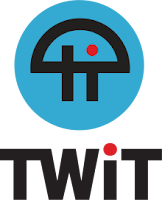It was not until recently that I discovered and started subscribing to podcasts. I wish I did earlier but the lack of available time (mostly) kept me away from them although we should always try to find time to learn and explore new things and technologies. So, I was very excited when I ran across FLOSS Weekly, a popular Free Libre Open Source (FLOSS) themed podcast from the TWiT Network. Currently, the lead host is Randal Schwartz, a renowned Perl hacker and programming consultant. As a Perl developer myself, it's needless to say that I greatly admire and respect him. FLOSS Weekly debuted back in April 2006 and as of 4th of May 2013 it features 250 episodes! That's a lot of episodes and lots of great stuff to explore.
Inevitably, if you don't have the time to listen to them all and had to choose only some of them, you would need to browse through all the listing pages (each containing 7 episodes) in order to find those that would interest you most. As I am writing this post one would have to visit 36 pages (by repeatedly clicking on the NEXT page link) to get a complete picture of all subjects discussed. Consequently, it's not that easy to quickly locate the ones that you find more interesting and compile a To-Listen (or To-Watch if you prefer video) list. I am not 100% sure that there is no such thing available on the twit.tv website but I was not able to find a full episodes list on a single place/ page. Therefore, I thought that a spreadsheet (or even better a JSON document) containing the basic info for each episode (title, date, link and description) would come in handy.
Hence, I utilised my beloved home-made scraping tool, DEiXTo, in order to extract the episodes metadata so that one can have a convenient, compact view of all available topics and decide easier which ones to choose. It was really simple to build a wrapper for this task and in a few minutes I had the data at hand (in a tab delimited text file). Then it was straightforward to import it in an Excel spreadsheet (you can download it here). Moreover, with a few lines of Perl code the data scraped was transformed into a JSON file (with all the advantages this brings) suitable for further use.
Check FLOSS Weekly out! You might find several great episodes that could illuminate you and bring into your attention amazing tools and technologies. As a free software supporter, I highly recommend it (despite the fact that I discovered it with a few years delay, hopefully it's never too late).
Check FLOSS Weekly out! You might find several great episodes that could illuminate you and bring into your attention amazing tools and technologies. As a free software supporter, I highly recommend it (despite the fact that I discovered it with a few years delay, hopefully it's never too late).




